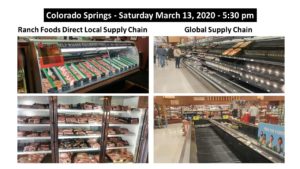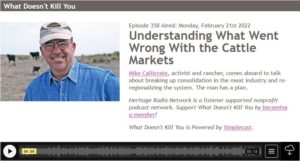American firms recruit thousands of Mexicans to do the nation’s dirtiest, most dangerous work.
Jungle Article MikeThe New Jungle
“Ninety years after Upton Sinclair published his groundbreaking expose of the nation’s meatpacking industry, illegal immigrants are flocking to the United States to take the dangerous, low-paying jobs most Americans won’t. The difference between now and then: Now there’s a system that keeps the illegals coming and the industry humming-and the plants have come to rely on it.”
Click on bottom of image to read full article. Zoom to make more readable.
“The people had come in hordes. [The meatpacking plant owner was] speeding them up and grinding them to pieces, and sending for new ones.”
“IBP just chews these people up and spits them out.”
“IBP, we don’t want you.”
“This is the resurgence of the politics of greed,” he says, “something we haven’t seen for 100 years, where big corporations think they have the natural right to import labor on demand.”
In early fall of 1996, journalist Stephen Hedges published a piece in U.S. News and World Report, Illegal in Iowa, about Iowa Beef Packer’s mistreatment of workers, which pulled back the curtain on the dark side of the food system, a terrible human rights record no one was paying attention to at the time. Three months later, in December, Hedges was in the packed Pierre, South Dakota auditorium on a cold December day for the South Dakota Governors Cattle Conference where he heard IBP president and CEO Robert Peterson blame South Dakota’s ranch families for the disastrous cattle price that was taking their ranches.
Hedges, who would continue to research and write about the dangers of an overly concentrated beef industry, probably wasn’t at all surprised by the tone of what he heard. From his research, he was well aware of the kind of leadership personality and stockholder driven company that would be capable of such mistreatment of workers and exploitation of communities. On this day, he was witness to IBP’s disrespectful, even shameful, treatment of its suppliers firsthand.
Despite his efforts, Hedges’ warnings went unheeded. The meat lobby, which included the largest cattle organization in the country, NCBA, as well as misguided land grant and government economists, persisted in reciting the lie that “big is better” and agriculture production should be all about “achieving efficiencies and economies of scale.”
How did this play out? Five years later something happened that even Bob Peterson could not have anticipated. With the meat industry continuing to consolidate, IBP sold to Tyson, the world’s big chicken processor, forming what then became the largest “protein” company in the world, a model that other meat packers would soon follow.
Fast forward to early 2020, and the pandemic arrives. In a few short weeks, the veil is lifted from the propaganda. Everyone can see that the workers we depend on to eat are sick, exhausted, and abused. They are literally dying. And what about the family farmers Bob Peterson was so dismissive of? They are suddenly locked out of the market, at a time when demand is exploding, people are scrambling to secure meat for their freezers and store shelves are being left empty.
Two years after the beginning of the pandemic and in the wake of the president’s executive order, little appears to be changing. Small plants, even when they do have the ability to increase capacity, struggle to find and train new workers, and battle daily against an often confrontational, onerous, and ineffective USDA inspection system. Large multinational firms block smaller plants from selling their production through existing channels with predatory practices and pricing. The bigger processors use false, misleading, and deceptive labeling to steal niche markets that should belong to small producers. With meat prices at record highs, big-box stores, restaurants, and institutional accounts still struggle to get product consistently, while cattle producers receive all-time record low income as a percentage of what consumers spend for beef.

A dependable and resilient supply chain: Ranch Foods Direct, a local/regional pasture to plate company, has kept workers safe, shelves stocked, and prices steady.
Post pandemic, the top-four meatpacking firms, still control 85% of the market, and continue to manage and manipulate the price of finished cattle and meat with relative impunity.
In 2001, when John Tyson announced Tyson’s purchase of IBP, he promised the company would not vertically integrate the cattle and beef industries in the same manner as poultry – and he didn’t. For the radically independent and less pliable cattle producer, he had something special in mind: the IBP formula. America’s cattle producers, our best land stewards, are now the cattle equivalent of Tyson’s indentured chicken farmers – and like the slaughterhouse worker, they’ve become a cost to be reduced by whatever means necessary.
How could cattlemen, seeing the plight of chicken farmers, be caught in this trap? Since 1996, after joining the board of the National Cattlemen’s Beef Association, the well-funded packer lobbying group, IBP and the other big packers, have sent their head cattle buyers to NCBA meetings to fraternize and ensure policy decisions would never threaten their interests.
This huge blunder has never been more clear: a globalized, corporate controlled, industrial approach to feeding people doesn’t. Let’s build a better food system that is more than just propaganda, one that is decentralized and builds communities instead of destroying them. Let’s build new local/regional food systems that are actually humane, regenerative, healthy and just. How can we invest in new farm-to-plate pathways that feed people instead of corporations?
To understand more about what went wrong and how we can fix it, please listen to the following podcast: https://heritageradionetwork.org/episode/understanding-what-went-wrong-cattle-markets
“When the markets are gone, and the game of monopoly is over …”
“Why would we pump precious fossil water from the Ogallala Aquifer to grow corn we don’t need?”
“Only an effective government can keep the predators at bay, while we build this new infrastructure.”














Mike I an in compete agreement concerning your post localizing agriculture and buying direct. A friend of mine’s sister worked for Tyson foods. She had the morning shift and the second shift were Mexicans and the evening or all night shift people were bused in. The plant was in operation twenty four hours a day and she did not receive any benefits. We know the quality of Tyson chicken is horrible and cheap.
Centralized control has no benefit locally but is is never ending. Recently a local food chain was purchased by a larger chain out of California. The founder of the local chain was very connected to the culture of Arizona and a collector of Native art. He was very supportive of the people who worked for him and fought the unions. One comment why the family sold were supply chain issues. I never shop at these stores but a friend commented that that prices were ridiculous but they were shopping at the store that was considered high end and always over priced. My grandfather was in the grocery business and sold out to a grocery chain in Des Moines, Iowa.
The pandemic was the greatest transfer of wealth in our history and one million small businesses were destroying across the country. Centralized control of everything and the food supply increased. Also the fast food chains are benefitting as they purchase from the big packers. I drove past a burger chain and they advertised twenty dollars will feed a family of four and the lines long. The area I live in there at least one hundred restaurants and mostly fast food in just one mile.
You had the vision and the foresight to break away twenty years ago but I only see a small percentage of producers breaking away. It is complicated but I know a rancher in Northern Arizona has developed a successful local market for their beef. We are also facing the centralized control of the financial system through vaccine passports and surveillance . I have a great deal of compassion for these traditional ranchers. It is also an issue of holding the culture of independence and self reliance that built this county. The realization of localizing beef and building more processing plants may require a miracle with all these forces we are facing. Then the consumer where convenience and price not quality is the driving force. Prices are increasing it seems every week or daily and fuel. A local Ace Hardware clerk told me they change prices everyday.